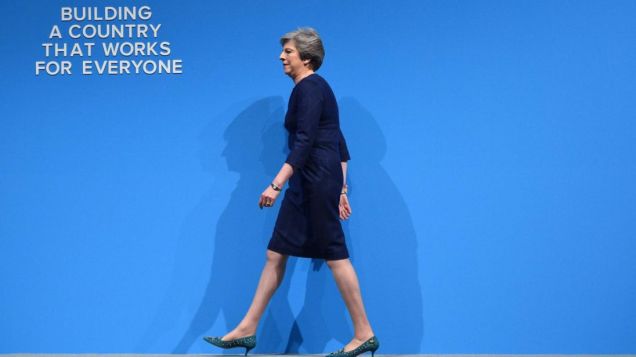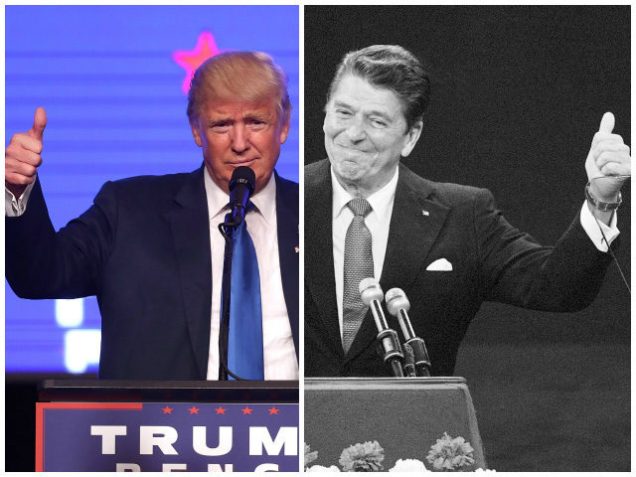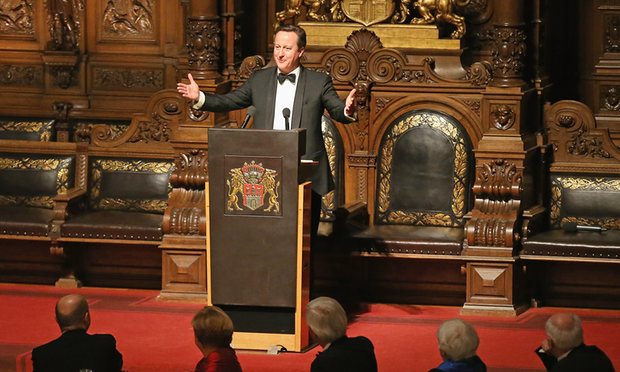
–
The World, Transformed
I saw this:
A traumatised and bedraggled family, still wearing the pyjamas in which they fled their smoke-filled flat in Grenfell Tower, were huddled together when the prime ministerial motorcade swept up outside the impromptu crisis centre and Theresa May strode through the open door accompanied by a single aide and minimal security, having dismissed police advice to maintain close-quarter protection at all times.
There were jeers, boos and some pointed profanity shouted in her direction as her entourage passed the crowd gathered outside, but the prime minister walked on unfazed and immediately approached the family, pointedly spurning the reception line of Kensington & Chelsea Borough Council officials assembled to greet her. The husband looked brittle, angry and ready to snap while his wife, in shock, stared blankly ahead.
But before either of them could speak, Theresa May knelt down and spoke to their two small young children. It was as awkward for those watching the scenes on television as it was to be there at the scene – the prime minister was not a natural empath at the best of times and as uncomfortable around children as she was in any other unscripted setting. But still she spoke quietly and reassuringly to the children while the cameras flashed, and produced some little toys from her bag before standing up to speak with the parents.
Again, it was awkward. The parents, still in shock, were monosyllabic and uncertain of what to say, but already some left-wing agitators gathered outside had decided that the inferno was the fault of the Conservatives and were chanting about the Evil Tories having blood on their hands. Over the muffled chants, however, the prime minister could be heard promising the family that they would be spending the next night together in a local hotel, and she would personally ensure that the Office of the Prime Minister, not anybody else, would secure them alternate local accommodation as soon as possible. As she went off to speak to other survivors, her aide followed behind, taking the details of each family and repeating the same assurances. Firefighters were still pumping jets of water onto the smouldering tower as the sun rose in the sky; the Mayor of London and Leader of the Opposition would not arrive for several hours yet.
As it became clear that Britain’s disaster preparedness and response plans were woefully outdated and inadequate, with poor coordination between the local council, emergency services and the Red Cross, Theresa May became a frequent fixture in the shadow of Grenfell Tower over the coming days. The hostility of the crowds became worse, if anything, and some of the survivors were understandably very angry, providing newspaper editors with choice quotes of criticism and TV news editors with more than one video of the prime minister being angrily dressed down by survivors.
But undeterred, the prime minister kept coming back. Though her security detail now maintained a more high-profile presence, the prime minister was frequently onsite, being briefed by response leaders and answering questions while her husband helped to coordinate donations and supplies. Once the immediate crisis was over, May gave a speech admitting that Britain’s disaster response plans were not fit for purpose, and pledging to create a new unified agency to take charge of Britain’s resilience against disasters both natural and man-made. Even many of her political enemies had to grudgingly admit that she had displayed real leadership in difficult circumstances.
This all happened shortly after the prime minister had finally imposed some order and discipline on her fractious Cabinet, pointing out to the Brexit Ultras that getting 100 percent of what they wanted on the back of 52 percent of the vote and an EU referendum question and campaign which deliberately avoided specifics was not reasonable. Boris Johnson and several others had made their displeasure known and even sought to destabilise her position as leader, with Boris effectively drafting his own personal Brexit manifesto in the Telegraph. Theresa May’s response was swift and unforgiving, warning Boris Johnson and other rebels to fall in line or be sacked and personally denounced from the podium at 10 Downing Street. The next day Boris gave a contrite press conference in which he acknowledged May’s leadership and admitted that he was in fact not the sole custodian of Brexit, before being sent by the prime minister on a long diplomatic tour of South America.
There was still loud discontent in Parliament about the government’s Brexit stance, not helped by mischief-making and uncertainty from the Labour Party. But Theresa May made it clear in all of her speeches, press releases and PMQs appearances that Brexit is a process, not an event, and that the best way to abide by the verdict of the 52 percent while acknowledging the 48 percent was to seek continued participation in the single market in the short term by applying to rejoin EFTA and trading with EU countries through the EFTA-EEA agreement in the short to medium term. She acknowledged that this interim step out of the orbit of the EU would offer only limited and largely untested tools to manage the free movement of people, a sticking point for so many, but pointed out that through this mode of Brexit, any retaliatory measures taken by the EU in the face of democratically determined UK immigration restrictions would at least not then automatically impact the entirety of our trade with the EU.
But still there was discontent and rumours of plots. So Theresa May issued a public challenge from the garden of Downing Street, daring Labour to call a vote of no confidence in her government and plunge the country back into chaos, and to her disloyal Cabinet members to fall in line or prepare to hand their ministries over to Jeremy Corbyn’s government-in-waiting. This bold, conciliatory stance on Brexit paid off. The grumbling died down, and Theresa May went into the Tory Party conference in Manchester strengthened and respected, if still widely disliked by many.
And what a conference it was. Nobody had any great expectations for the Conservatives, particularly given the distrustful atmosphere in Cabinet and after Jeremy Corbyn cemented his iron rule of the Labour Party by delivering a triumphalist, ambitious left-wing credo. But for once in her political life, Theresa May surprised everyone. Freed from the pernicious influence of her old Red Tory brain trust, May showed a new willingness to listen to the Right of the party, on the condition that they applied their small government values to coming up with new solutions rather than simply reheating the old Thatcherite medicine of the 1980s.
Her conference speech, though marred by a prolonged coughing fit, a juvenile protester and the gradual collapse of part of the stage, was the complete opposite of her first outing in 2016. It was an acceptance that the dour, paternalistic, technocratic approach to government she had championed in her first year had inspired zero enthusiasm in the public, and that the Conservatives could not expect to win based on scaremongering about Venezuelan socialism or overwrought insults to Jeremy Corbyn.
The prime minister took responsibility for the awful 2017 general election campaign, pledging that henceforth the Conservatives would be a party of ideas, that the status quo was something unacceptable, not something to be preserved, and that only the Tories could be relied upon to preserve the best of tradition while orienting Britain to meet the challenges of this century. And the British media, showing a renewed dedication to serving the public interest by reporting seriously on policy over spectacle, gave the speech the hearing it deserved. Within two days, nobody remembered the prankster or the coughing fit.
But having set out these goals in her speech, Theresa May also made clear that she would not fight the next general election, but rather would step down at some point after the formal EU secession was complete to make way for new leadership. She did this knowing that it would ignite speculation about her likely successor, but maintained that neither the Conservative Party nor the country would benefit from a hasty leadership election – that potential Tory leaders needed time to think about their ambitions Britain as well as their career ambitions. By announcing this long-term intent, May enabled the Conservatives to finally begin a meaningful debate about what conservative government should look like in the 21st century. Ideas were debated, not policies floated, dissected, discarded or refined.
After a long period of questionable value added to British politics, the right-wing think tanks took on a new lease of life, finally becoming incubators of radical, civic-minded policy rather than mere enablers and cheerleaders for a very narrow agenda. The IEA, Centre for Policy Studies and Adam Smith Institute became among the most exciting places to work in Westminster, the mediocre-but-well-connected hires having been pushed out to make room for thinkers of real vision and expertise.
Because of this ideological renewal, when potential future Tory leaders did eventually start to manoeuvre for position they were forced to appeal to would-be supporters by convincing other MPs (and the general public) that they had the best ideas, as well as the courage and leadership skill to enact their agenda. No longer was it enough to appeal to the vanity or career aspirations of junior MPs with offers of advancement, or woo them over sushi and sandwiches.
And when Theresa May eventually stepped down as promised, one year before the next general election, her strategy paid off handsomely. In hindsight, her successor was a natural choice – someone with solid small government credentials but not an ideologue imprisoned by 30-year-old dogma. Someone able to talk up rather than down to the nation, unafraid to show a bit of poetry in their rhetoric but equally comfortable talking with voters at the local pub.
Theresa May’s successor came from a humble background and a history of community and philanthropic involvement, a walking refutation of leftist charges that conservatives are selfish, callous and born to privilege. But more than all that, the new prime minister was someone with a burning mission to improve Britain and a desire to help their fellow citizens help themselves. Someone who promised to inject some ambition and a sense of direction back into Britain. Someone whose conception of the journey ahead extended beyond the moment they stepped across the threshold of 10 Downing Street.
The 2022 general election would be a close-fought race, but at least the Tories now respected the threat posed by Corbynite Labour and stepped up their own efforts in response. The Conservatives had pulled off that most difficult of manoeuvres – a major ideological course correction whilst in government – but Jeremy Corbyn’s Labour Party were still riding high, level in the polls. For the new prime minister to truly cement their authority, a convincing general election result was needed to usher in an intake of new Tory MPs fully committed to the new project – and to sweep out a lot of dead wood from previous administrations (though Theresa May had graciously agreed to remain in Cabinet as Minister for Citizenship).
And there were some encouraging signs. While Jeremy Corbyn continued to attract support by offering free things to millennials, it appeared that Generation Z which followed them were more independent and receptive to a conservative message now that it was being delivered boldly and unapologetically. A nascent conservative youth movement was reborn. Campaign events were held in real public squares encouraging real public interaction rather than being clinical press photo opportunities with distant party activists brought in by bus. These campaign stops were used to discuss ideas, not transmit soundbites, and when the inevitable public heckles and hostile media questions occurred, the prime minister was fond of quoting John F. Kennedy, calling for people to ask not what their government can do for them, but what they can do for their country, and for their fellow citizens.
There was even a positive public and media response to the Conservatives’ new slogan and title of their 2022 election manifesto, which rejected the usual pandering platitudes and simply read: Dare Mighty Things.
It made me feel as though there is hope for our political class, for conservatism and for our country.
That is what I saw this week.
I should note – this part is true – that I saw much of this while slumped over, asleep at my desk after a long and tiring week. For an hour afterward, even knowing it was either a fantasy or a dream, I felt so . . . hopeful. Cheerful. Proud. I give it to you.
This article is inspired by the great Peggy Noonan, an homage to her recent Wall Street Journal Op-Ed re-imagining the Trump presidency in an alternate America where civic virtue is still valued. If I manage to become one tenth of the writer that Noonan is, all these years of blogging will not have been in vain.

–
Support Semi-Partisan Politics with a one-time or recurring donation:
–
Agree with this article? Violently disagree? Scroll down to leave a comment.
Follow Semi-Partisan Politics on Twitter, Facebook and Medium.







